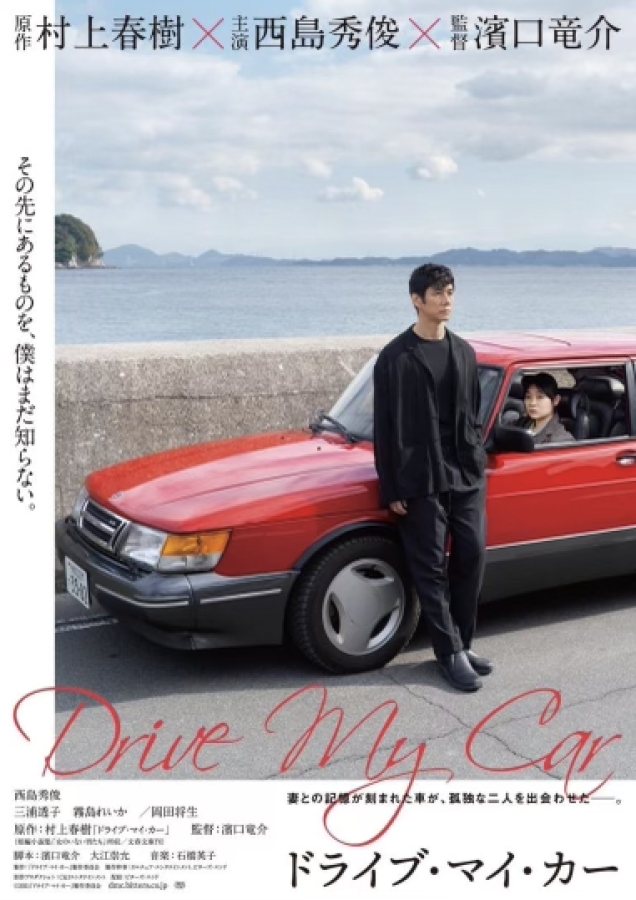Movie Review: Drive My Car
Technically, “Drive My Car” excels in nearly every department. Japanese filmmaker Ryusuke Hamaguchi demonstrates remarkable craftsmanship, particularly where the cinematography, editing, and sound design are concerned.
Taking influence from Iranian filmmaker Abbas Kiarostami, “Drive My Car” consists of immaculate yet simplistic framing and camerawork, especially in scenes that capture the impressive roads and highways of Hiroshima; the photography is a stand-out aspect of the film and is easily my favorite part of the whole three-hour-long experience. The camera often lingers on a scene for a very long time, which ironically emphasizes the points at which the film decides to cut to the next scene. Whether it be a cut from a wide shot of a highway to an intimate conversation in the backseat of the car, the film’s editing choices are very purposeful and have clear artistic intent, elevated by the sound design. There’s a specific moment in the film in which all sound is nullified for what feels like 5 whole minutes – possibly the loudest silence I’ve ever heard in a theater. Overall, every frame and creative influence Hamaguchi and his crew aimed so hard to perfect are very much worthy of their critical acclaim and forge what is possibly the most meticulously constructed film of 2021.
Although “Drive My Car” excels in the technical department, that unfortunately wasn’t enough to grip me emotionally. The film’s narrative – based on a short story of the same name by Haruki Murakami – follows stage director and actor Yusuke Kafuku (Hidetoshi Nishijima) who is struggling to cope with the unexpected death of his wife. Two years later, Kafuku is given the opportunity to direct a stage adaptation of “Uncle Vanya” (by Russian playwright Anton Chekhov) in Hiroshima. In commuting to rehearsals, Kafuku is assigned a chauffeur (Toko Miura) and slowly resolves his internal struggles by empathizing and relating to those around him.
The premise is straightforward enough, but the heart and passion for the film’s narrative were virtually non-existent in my eyes, especially for a film that demands so much emotional attention from its audience. There wasn’t a scene that moved me in any particular way and I found the majority of the film to be devoid of any clear purpose. For example, there was a moment in which Kafuku’s chauffeur, Misaki Watari, visits burned-down remains of her old village. After spending time with these characters for over two hours, this was meant to be an incredibly emotional and heartfelt scene, but I, unfortunately, wasn’t able to feel anything for any of these characters because the film didn’t even seem to care. The characterization and performances, while good, also felt very artificial and surface level, hindering my emotional connection to the film itself. The self-indulgent dialogue didn’t seem to help either, implying that the film believes it is more profound than it actually is.
Despite its incredibly polished nature and director/writer Hamaguchi’s noticeable work ethic and vision, “Drive My Car” doesn’t offer anything new, exciting, or remotely meaningful for me to care about.



